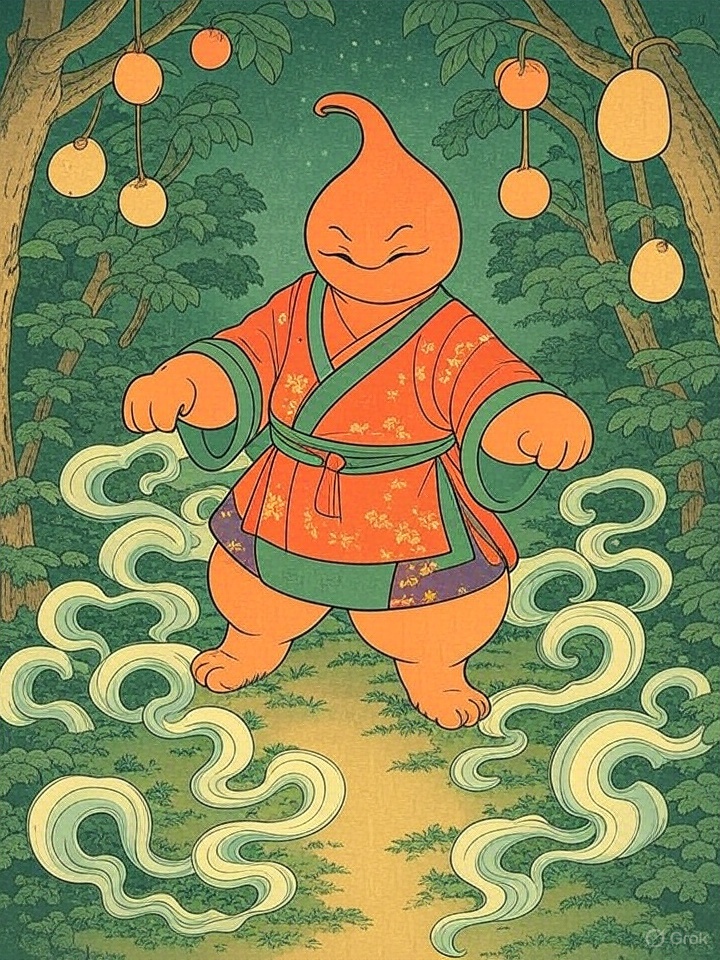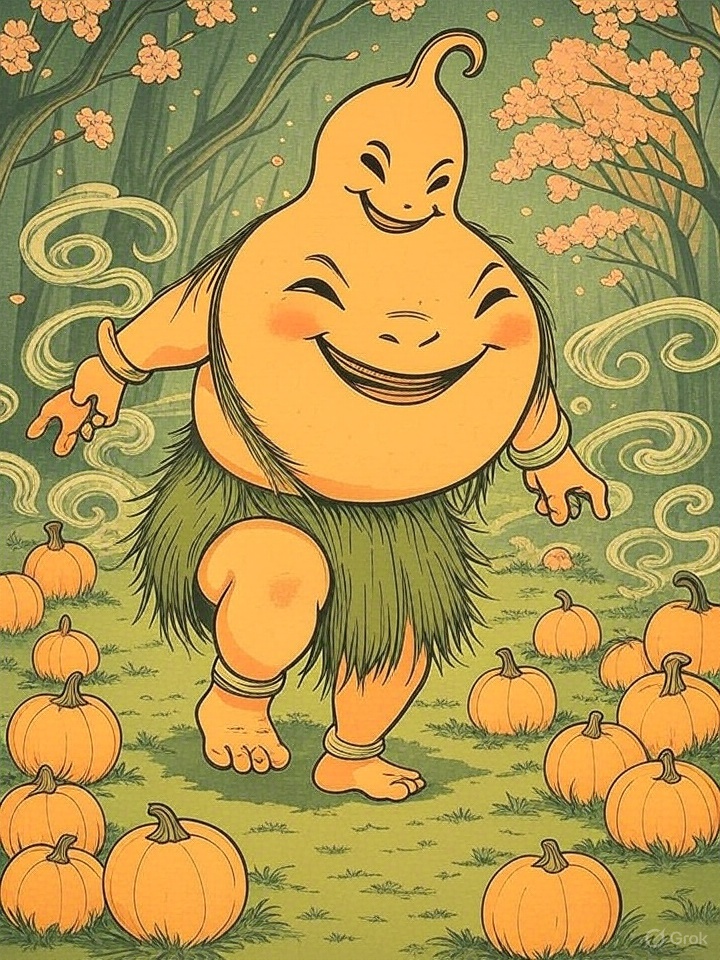Name Meaning
Overview
\n
Hyōtan-kozō (瓢箪小僧) translates to “Gourd Boy.” This yokai is known for its lighthearted and mischievous nature, often surprising people in the night by popping up with its large gourd.
- Hyōtan (瓢箪) = Gourd
- Kozō (小僧) = Young boy or monk
Origin
- Appears in Edo-period ghost stories and children’s folktales.
- Often seen as a harmless yokai that causes mischief rather than harm.
Appearance
- Looks like a cheerful child in traditional clothing.
- Always carries a large hyōtan (gourd) on his back.
- Sometimes has exaggerated facial features, such as large eyes or ears.
Behavior & Myths
- Lurks near shrines or quiet roads at night.
- Laughs playfully when it startles someone.
- Sometimes said to bring good luck if treated kindly.
Symbolism
- Represents childlike playfulness and the unexpected.
- May act as a reminder to laugh at fear and enjoy whimsy.
- Gourd symbolizes luck and protection in Japanese culture.



